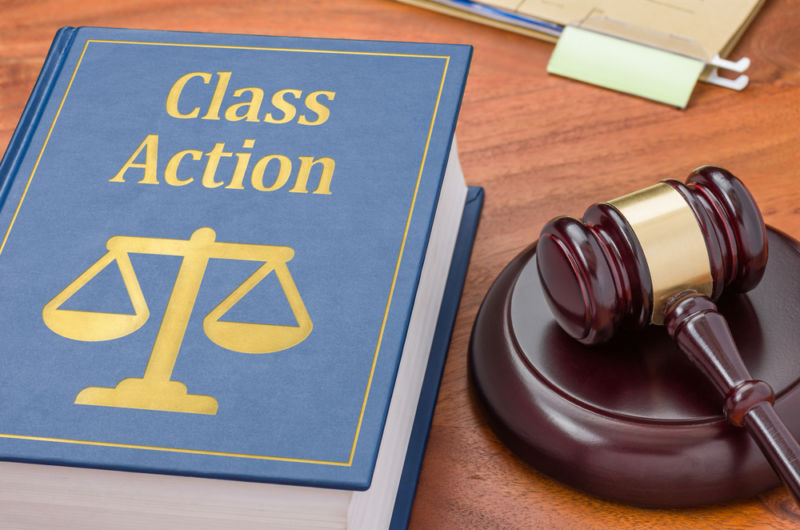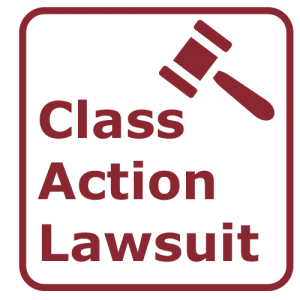Insights into the Future FinTech Class Action Lawsuit: Remain Informed
Wiki Article
Debunking Class Activity Claims: A Closer Consider Legal Process
Course action suits can be intricate and daunting, often shrouded in a veil of mystery for those strange with the legal procedures entailed. From recognizing the standards for class activity eligibility to the role of class representatives, and from the process of course certification to the resolution of these suits, we will certainly unwind the ins and outs and lost light on the internal workings of this lawful mechanism.Comprehending Class Action Claims
Understanding Class Activity Legal action calls for an extensive exam of the legal procedures associated with cumulative litigation. Class activity legal actions are a type of lawful action where a group of people with comparable insurance claims or complaints join together to start a claim versus a typical accused. This kind of lawsuits allows people with limited sources to jointly seek justice, as it combines the toughness of several private insurance claims right into a single lawsuit.The process begins with the recognition of a lead plaintiff or course agent who files the preliminary complaint in behalf of the entire course. The court then figures out whether the situation meets the demands for course accreditation, which include commonness, numerosity, typicality, and adequacy of depiction. If accredited, the court alerts potential course participants, providing a possibility to opt-out if they want to pursue their cases independently.
Once the course is accredited, the litigation proceeds via various phases, consisting of exploration, motion method, and, if required, trial. The result of the claim can result in a negotiation or a judgment, which is binding on all course members unless they pick to opt-out. Class activity suits can encompass a broad array of legal problems, such as customer defense, securities scams, work discrimination, and ecological harm.
Understanding the subtleties of class action legal actions is essential for both complainants and offenders associated with cumulative lawsuits. It requires an extensive understanding of the lawful demands for certification, the legal rights and obligations of class participants, and the potential benefits and risks connected with seeking or defending against course action cases.
Identifying Course Action Eligibility
To determine whether a lawful activity certifies as a course action lawsuit, certain criteria should be fulfilled. These requirements are designed to make sure that the case can appropriately stand for the interests of a large team of individuals who have experienced comparable harm or have actually been influenced by the same concern. The key aspect in recognizing course activity eligibility is the existence of an usual inquiry or issue that impacts all potential class participants.First of all, a class activity lawsuit needs numerosity, which implies there should be a considerable variety of possible class members included. This guarantees that a course activity is a reliable means to deal with the cases of a huge team of individuals, instead than having each individual submit a specific legal action.
Secondly, there must be commonness among the insurance claims of the possible class members. This indicates that there should be an usual inquiry of legislation or truth that is central to the situation. A course action might not be suitable. if each possible course participant's case is one-of-a-kind and unconnected to the others.

The Duty of Class Representatives
Course reps play a critical role in course action suits by standing for the passions of the entire class. These people are go to these guys selected from within the class to function as the general public face of the claim and are accountable for choosing in behalf of all More about the author class members. The function of class reps entails various obligations and tasks throughout the lawful process.
Among the main responsibilities of class reps is to supply info and help to their fellow class participants. They function as a point of call and communication between the class members and the lawyers representing them. This consists of maintaining the class members notified about vital updates, answering their concerns, and addressing any problems they may have.
Course representatives also have the obligation to actively get involved in the litigation process (Future FinTech class action lawsuit). This entails functioning carefully with the attorneys to develop legal techniques, collecting proof, and offering testament if necessary. They have to be proactively involved in all facets of the instance to ensure that the very best rate of interests of the entire class are represented
Moreover, course agents are in charge of authorizing settlements or other resolutions gotten to in the claim. They must very carefully examine the regards to the settlement and make a choice that is in the most effective rate of interest of the whole course. This decision-making procedure calls for mindful factor to consider and assessment with the class participants.
The Process of Course Accreditation
The process of licensing a class in a class action claim entails a comprehensive examination of details criteria to figure out if the case fulfills the necessary demands for class qualification. Class accreditation is a vital action in the lawsuits procedure as it identifies whether a lawsuit can proceed as a course action, allowing a huge group of people with similar claims to be represented collectively by one or a few people.To get class qualification, the complainant needs to show that the suggested course satisfies specific requirements. Typicality needs that the claims or defenses of the course representatives are typical of those of the course. Competence of depiction makes certain that the course agents will rather and effectively safeguard the rate of interests of the class.
The court will look at these requirements and the plaintiff's evidence to determine if the proposed course fulfills the necessary needs. The court may also consider various other factors, such as whether a class action is the superior technique to deal with the disagreement and whether the class is sufficiently natural.

As soon as the court grants class certification, the lawsuit can proceed as a course action, permitting the plaintiffs to collectively look for relief and possibly receive a judgment or settlement that benefits the whole class.
Solving Class Activity Claims
Once class qualification has been granted, the following step in solving a course activity claim is to navigate the process of litigation or negotiation arrangements. Lawsuits refers to the legal procedures in court, where the plaintiff's attorney presents evidence and arguments to support their cases, and the accused's lawyer counters with their own proof and debates. This procedure can include different stages, such as pretrial motions, discovery, and trial. Throughout pretrial activities, both parties may file activities to reject the situation or limit the issues in contention. Discovery permits each side to gather proof and details from the various other party via methods such as paper interrogatories, requests, and depositions. Finally, if the case continues to trial, both events offer their instance before a court or court, that will certainly after that determine the outcome.On the other hand, settlement arrangements involve conversations in between the celebrations to get to a mutually acceptable resolution without going to trial. Archer-Daniels-Midland my sources class action lawsuit. Negotiation provides may be made at any kind of phase of the litigation procedure, and if both celebrations agree, a negotiation contract is reached. This arrangement typically outlines the terms and problems of the settlement, consisting of any financial payment, injunctive relief, or other solutions. When the negotiation is finalized, it exists to the court for authorization.
Verdict
Finally, course action claims play a crucial function in supplying justice and settlement to huge teams of individuals that have actually been hurt by the exact same entity. By licensing a class and designating course representatives, the legal process becomes a lot more reliable and available for the plaintiffs. Dealing with these suits can be a complicated and extensive procedure, but it is important in holding firms liable for their actions and ensuring fair outcomes for all influenced parties.From recognizing the standards for course activity eligibility to the duty of course agents, and from the procedure of course qualification to the resolution of these legal actions, we will decipher the details and dropped light on the inner workings of this lawful mechanism. The vital aspect in determining class action eligibility is the visibility of an usual concern or issue that influences all prospective course participants.
If each potential course member's case is unconnected and distinct to the others, a course activity may not be ideal.
Course reps play an important role in course action legal actions by standing for the passions of the entire course.As soon as class certification has been granted, the next action in resolving a course activity suit is to navigate the process of lawsuits or settlement arrangements.
Report this wiki page